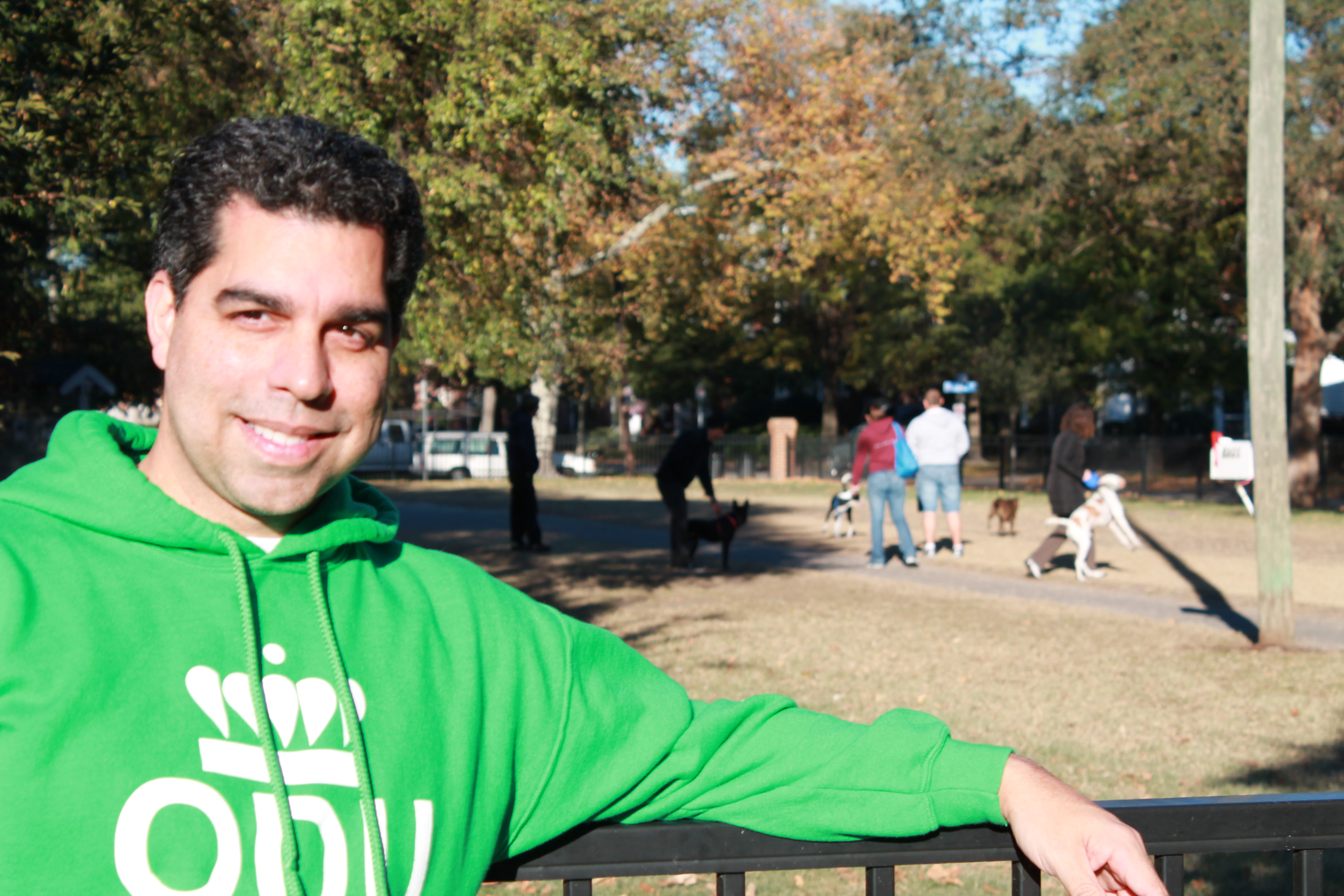Dog's Best Friend? Prof's Research Finds There's a Lot to Like in Off-Leash Recreation Areas
By Brendan O’Hallarn
For Old Dominion's Edwin Gómez, a unique research opportunity just took a little digging. And scratching. And sniffing.
Driving home from work every day through Colonial Place in Norfolk, Gómez would pass a small sliver of green space packed full of dogs and their owners. The dogs were milling around, off of their leashes, in one of the city's dog parks. It was something Gómez had never seen previously.
"I had never heard of a dog park at the time," said Gómez, associate professor of park, recreation and tourism studies at ODU. "As I kept going through and seeing the crowds of dogs and their owners that assembled, I thought that subculture would make a good research opportunity."
A thorough review made Gómez realize that there was almost no scholarship on the issue. "It's totally under-researched. And dog parks have been around for over three decades," he said.
It's not like dogs are a niche industry, either. The nation's nearly 78 million pet dogs (there are as many dogs as there are children under 18 in the United States) represent a $7.5 billion industry. Gómez, who did his first study of Hampton Roads dog parks in 2004, by observing and interviewing dog park users, said there is significant evidence that the parks - known as off-leash recreation areas - bring a neighborhood benefits that extend far beyond the dog owners themselves.
"The literature says dog parks actually decrease crime in a neighborhood. They help create a sense of community, even for the non-dog owners," Gómez said.
But negative issues such as dog attacks and disease being spread through dog feces mean that the parks also have vocal opponents.
Gómez recently authored an article in the Journal of Park and Recreation Administration (JPRA) that is intended as a guide for practitioners - the municipal officials and neighborhood associations that are lobbying for, or against, creating off-leash recreation areas.
In the piece, Gómez and a team of undergraduate researchers conducted a case study analysis of the Colonial Greenway Dog Park at Llewellyn Avenue and Delaware Street, observing dogs and their owners, and surveying users over a two-month period about the general benefits they derive from the parks.
Gómez said the research demonstrates that dog park users believe there is a strong sense of community occurring among dogs and dog owners at the park. "Dog parks are both good and bad for a neighborhood, but a lot of the bad can be taken care of quite easily," he said.
The benefits of a park include socialization and exercise for the animals, a growth in the sense of community (including for non-dog owners) and a decrease in crime. Drawbacks include a higher rate of potential aggression by the animals if not properly supervised, disease contraction (especially through dog feces) and noise.
"That's why the location of dog parks is crucial," Gómez said. "In Norfolk, in order for a dog park to be created, proponents need permission from all adjoining properties."
His article also covers the evolution of dog parks, starting with open fields and few rules when the parks were introduced in California more than three decades ago, evolving to parks with a codified set of rules governing dog owners. Gómez said cities are now seeing the "Disneyfication" of dog parks, where amenities such as obstacle courses and fetch toys are included in the park infrastructure.
Ironically, Gómez himself had never been a dog owner. "I didn't get a dog until I started going to dog parks," said Gomez, who now owns an American bulldog (Chula). "I saw the joy that dogs gave to people."
Gómez comes to another conclusion from his research about dog parks, particularly the well-used parks in densely populated urban areas.
"If humans used parks as much as dogs are using dog parks, think about the impact that would have on obesity and other health and wellness issues."


